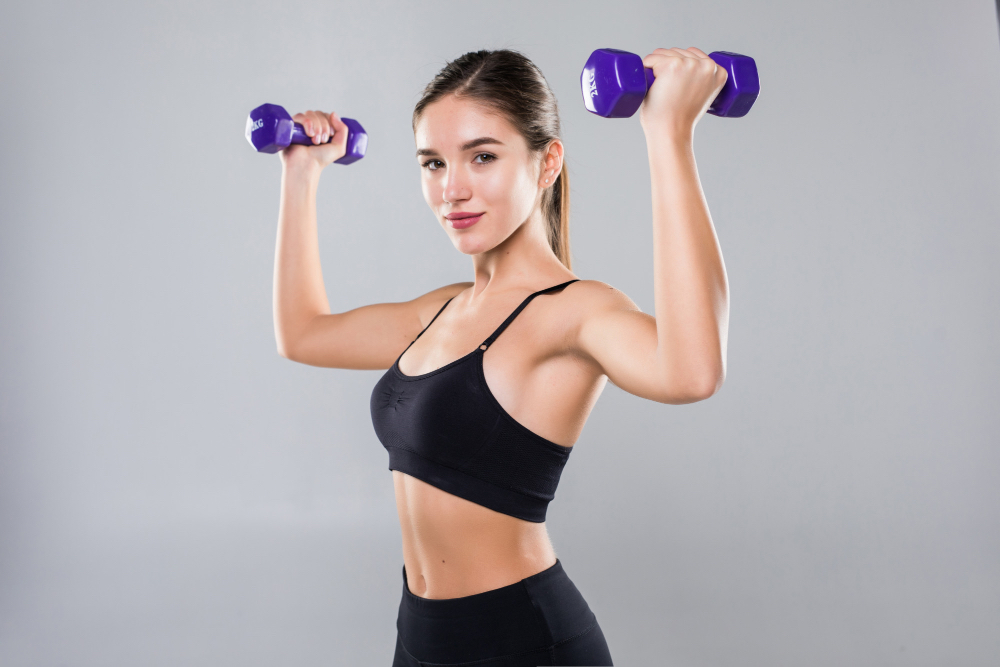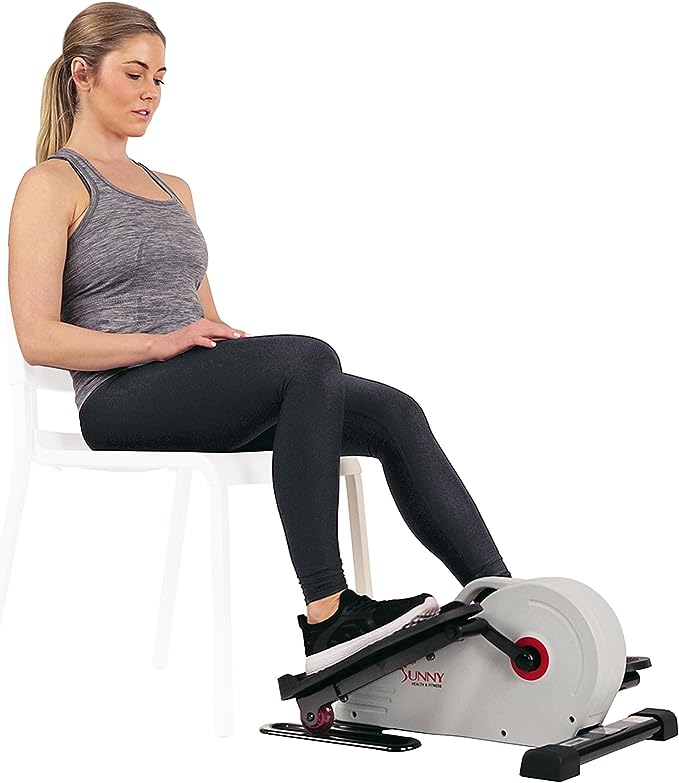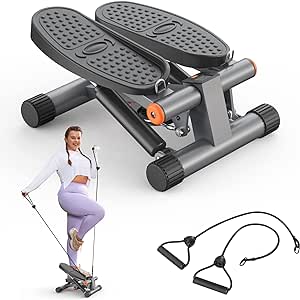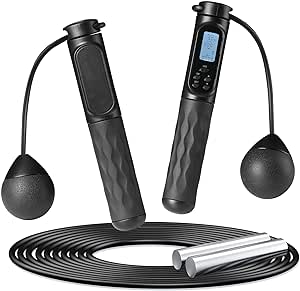
7 Best Portable Cardio Machines: Your Guide to Staying Fit on the Go

Staying active and maintaining cardiovascular fitness is crucial, especially in today’s fast-paced world. For fitness enthusiasts who are always on the move, portable cardio machines are a game-changer. This article reviews the 7 best portable cardio machines, helping you make an informed decision for your fitness journey.
Tips for Choosing a Portable Cardio Machine
When it comes to staying fit and healthy, choosing the right portable cardio machine can be a game-changer, especially if you’re short on space or always on the move. Here are some essential tips to help you select the best portable cardio machine for your needs:
1. Assess Your Fitness Goals
- Beginner vs. Advanced: If you’re just starting, look for machines that offer basic functionalities, while advanced users might prefer machines with more features and higher resistance levels.
- Type of Workout: Whether you prefer low-impact exercises like walking or high-intensity workouts will determine the type of machine you should choose.
2. Consider the Space You Have
- Storage: Look for machines that are foldable or have a slim profile for easy storage in small spaces.
- Usage Area: Ensure you have enough room to safely use the machine without any restrictions.
3. Check the Portability Features
- Weight: Lighter machines are easier to move and store.
- Transportation: Some models come with wheels or handles for easy transportation.
4. Examine the Durability and Quality
- Construction: A sturdy frame ensures longevity and safety.
- Material: High-quality materials can withstand regular use and are more durable.
5. Look for Adjustable Features
- Resistance Levels: Adjustable resistance helps in progressively increasing the intensity of your workout.
- Customizable Settings: Features like adjustable seat height, handlebars, and pedal straps make the machine more comfortable to use.
6. Evaluate the Machine’s Functionality
- Type of Exercise: Different machines offer different types of cardiovascular exercise – treadmills, ellipticals, steppers, etc.
- Range of Motion: Ensure the machine provides a full range of motion for your body type and fitness level.
7. Check for Additional Features
- Digital Monitors: Monitors that track time, calories, distance, etc., help in monitoring progress.
- Extra Accessories: Some machines come with additional features like resistance bands, mats, or integrated fitness apps.
8. Set a Budget
- Price Range: Determine how much you’re willing to spend as prices can vary significantly.
- Cost vs. Quality: A higher price doesn’t always guarantee better quality, so it’s important to balance the two.
9. Read Reviews and Do Research
- Customer Feedback: User reviews can provide valuable insights into the machine’s performance and durability.
- Brand Reputation: Choose brands with a good reputation for quality and customer service.
10. Try Before You Buy
- Test the Machine: If possible, try out different models to see how they feel.
- Return Policy: Check the return policy in case the machine doesn’t meet your expectations after purchase.
Tips for Choosing a Portable Cardio Machine
When it comes to staying fit and healthy, choosing the right portable cardio machine can be a game-changer, especially if you’re short on space or always on the move. Here are some essential tips to help you select the best portable cardio machine for your needs:
1. Assess Your Fitness Goals
- Beginner vs. Advanced: If you’re just starting, look for machines that offer basic functionalities, while advanced users might prefer machines with more features and higher resistance levels.
- Type of Workout: Whether you prefer low-impact exercises like walking or high-intensity workouts will determine the type of machine you should choose.
2. Consider the Space You Have
- Storage: Look for machines that are foldable or have a slim profile for easy storage in small spaces.
- Usage Area: Ensure you have enough room to safely use the machine without any restrictions.
3. Check the Portability Features
- Weight: Lighter machines are easier to move and store.
- Transportation: Some models come with wheels or handles for easy transportation.
4. Examine the Durability and Quality
- Construction: A sturdy frame ensures longevity and safety.
- Material: High-quality materials can withstand regular use and are more durable.
5. Look for Adjustable Features
- Resistance Levels: Adjustable resistance helps in progressively increasing the intensity of your workout.
- Customizable Settings: Features like adjustable seat height, handlebars, and pedal straps make the machine more comfortable to use.
6. Evaluate the Machine’s Functionality
- Type of Exercise: Different machines offer different types of cardiovascular exercise – treadmills, ellipticals, steppers, etc.
- Range of Motion: Ensure the machine provides a full range of motion for your body type and fitness level.
7. Check for Additional Features
- Digital Monitors: Monitors that track time, calories, distance, etc., help in monitoring progress.
- Extra Accessories: Some machines come with additional features like resistance bands, mats, or integrated fitness apps.
8. Set a Budget
- Price Range: Determine how much you’re willing to spend as prices can vary significantly.
- Cost vs. Quality: A higher price doesn’t always guarantee better quality, so it’s important to balance the two.
9. Read Reviews and Do Research
- Customer Feedback: User reviews can provide valuable insights into the machine’s performance and durability.
- Brand Reputation: Choose brands with a good reputation for quality and customer service.
10. Try Before You Buy
- Test the Machine: If possible, try out different models to see how they feel.
- Return Policy: Check the return policy in case the machine doesn’t meet your expectations after purchase.
7 Best Portable Cardio Machines
1. Compact Treadmill

Features
- Weight: Lightweight design, easy to move.
- Size: Slim profile for easy storage.
- Speed Range: Suitable for walking and jogging.
Pros
- Ideal for small spaces.
- Can be stored under beds or in closets.
Cons
- Limited speed options.
- Not suitable for high-intensity workouts.
2. Foldable Exercise Bike

Features
- Weight: Moderately light, easy to transport.
- Resistance Levels: Adjustable for varied intensity.
- Design: Foldable for easy storage.
Pros
- Versatile for different fitness levels.
- Space-saving when not in use.
Cons
- May not be as sturdy as non-foldable models.
- Limited features compared to full-sized bikes.
3. Portable Elliptical Machine

Features
- Footprint: Compact size.
- Resistance: Adjustable tension.
- Digital Monitor: Tracks fitness metrics.
Pros
- Low-impact exercise, suitable for all ages.
- Can be used while sitting or standing.
Cons
- Smaller stride length compared to standard ellipticals.
- May require balance and coordination.
4. Mini Stepper with Resistance Bands

Features
- Design: Small footprint, includes resistance bands.
- Portability: Extremely lightweight and portable.
- Display: Simple monitor for basic metrics.
Pros
- Offers full-body workout.
- Easy to use and store in small spaces.
Cons
- Limited motion range.
- Not ideal for advanced fitness enthusiasts.
5. Jump Rope with Digital Counter

Features
- Portability: Highly portable, fits in a small bag.
- Counter: Built-in digital counter for tracking jumps.
- Adjustability: Adjustable length for different heights.
Pros
- Excellent cardiovascular workout.
- Can be used anywhere.
Cons
- Requires coordination and skill.
- Limited to jump rope exercises.
6. Portable Rowing Machine

Features
- Design: Compact and foldable.
- Resistance: Adjustable hydraulic resistance.
- Monitor: Tracks time, count, and calories burned.
Pros
- Full-body workout targeting multiple muscle groups.
- Ideal for moderate to intense workouts.
Cons
- Larger than other portable options.
- May require more space for use.
7. Compact Air Walker

Features
- Stride: Free-motion stride for a full range of movement.
- Folding: Easily folds for storage.
- Digital Display: Tracks time, count, and calories.
Pros
- Simulates walking and running motions.
- Low impact on joints.
Cons
- Limited resistance options.
- Larger footprint than other portable machines.
Important Note
“When choosing a portable cardio machine, consider your fitness goals, available space, and the type of workout you prefer. Always check the weight capacity and stability of the machine to ensure safety and effectiveness.”
Conclusion
Portable cardio machines are an excellent solution for maintaining fitness on the go. They cater to various preferences, from walking and cycling to more intense rowing and stepping exercises. Remember, the key is to find a machine that aligns with your fitness goals and lifestyle needs. Happy exercising!
Frequently Asked Questions About Portable Cardio Machines
When it comes to selecting and using portable cardio machines, several common questions often arise. Here are some of the most frequently asked questions to help guide your decisions and usage:
1. What are the best types of portable cardio machines for small spaces?
- Answer: Compact treadmills, foldable exercise bikes, mini steppers, and portable ellipticals are great for small spaces. They typically offer foldable or slim designs that can easily be stored in tight areas.
2. Are portable cardio machines effective for weight loss?
- Answer: Yes, portable cardio machines can be very effective for weight loss, as they offer convenient ways to engage in cardiovascular exercise, which is crucial for burning calories and fat.
3. How often should I maintain my portable cardio machine?
- Answer: It’s recommended to do a basic clean after each use and a more thorough check for wear and tear monthly. Regular maintenance schedules vary depending on the type of machine and frequency of use.
4. Can portable cardio machines be used by people of all fitness levels?
- Answer: Absolutely, many portable cardio machines come with adjustable settings like resistance levels, making them suitable for people of various fitness levels, from beginners to advanced.
5. How much should I expect to spend on a quality portable cardio machine?
- Answer: The price can vary widely based on the type, brand, and features, ranging from a few hundred to a couple of thousand dollars. Setting a budget and balancing cost with desired features is key.
6. Are there portable cardio machines that offer a full-body workout?
- Answer: Yes, some portable machines like rowing machines and mini steppers with resistance bands can provide a full-body workout by targeting multiple muscle groups.
7. How can I ensure the safety of my portable cardio machine?
- Answer: Regularly check for loose parts, maintain the machine as per the manufacturer’s guidelines, and ensure it’s on a stable, level surface during use to ensure safety.
8. Is it easy to store and transport portable cardio machines?
- Answer: Most portable cardio machines are designed for easy storage, with foldable parts and lightweight designs. Some even come with wheels or handles for easier transport.
9. Can I use portable cardio machines if I have joint issues?
- Answer: Yes, options like ellipticals and exercise bikes are low-impact and suitable for those with joint issues. It’s always best to consult with a healthcare provider before starting any new exercise regimen.
10. Do portable cardio machines require an external power source?
- Answer: This depends on the machine. Some, like manual treadmills or mechanical steppers, don’t require power, while others, like electric folding treadmills, do require a power source.






